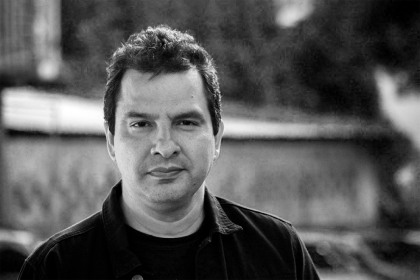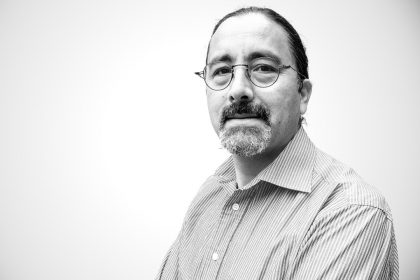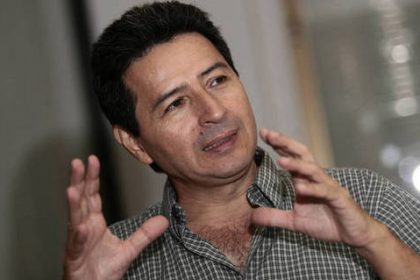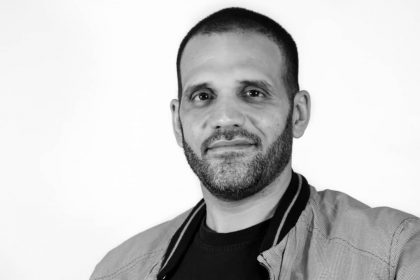ABOUT THE AUTHOR:
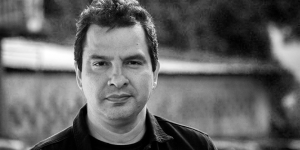
Rafael Uzcátegui
Sociologist and freelance editor. He is currently the General Coordinator of Provea.
Rafael Uzcátegui │ It is still premature to decide whether or not to participate in the forthcoming and hypothetical parliamentary elections. However, if we decide not to participate, we will find ourselves in a more unfavorable position to achieve a potential transition to democracy.
As I write these lines for TalCual, Venezuelans across the country have been queuing for more than 20 hours to get gas for their vehicles, after Nicolás Maduro announced the distribution of Iranian fuel. In Caracas and several other cities, recurring and unscheduled interruptions of water and electric power service are the norms. Some 11 million Venezuelans were left without their main source of entertainment amid the lockdown: Directv.
The increase in the COVID-19 contagion curve suggests that we are entering the community transmission phase of the Coronavirus, which according to the projections of the Academy of Sciences could peak at some 2,000 to 4,000 cases a day starting in June.
Large swaths of the population do not have enough income to put the bare minimum on their tables, so they are forced to challenge the quarantine to try to earn some additional money. The crisis of water, electric power, domestic gas, and other public services, hinders compliance with basic hygiene and safety standards to fight the COVID-19 outbreak.
On the other hand, the state of alarm is used to further exert control over the Venezuelan people, increasing censorship, persecution, and suppressing the remnants of any freedom we had left. While the rest of the world celebrates coming out of the pandemic, Venezuela will continue to suffer the lack of democracy, the increase in poverty levels, and the worst migration crisis in the region in recent decades.
Words seem scarce to describe the depth and extent of the anthropological damage made to Venezuelans. As dantean as this scenario may seem, it could still be much worse. For example, I invite you to imagine a Venezuela in which the de facto government controls the majority of the National Assembly. Not the Constituent Assembly nor Luis Parra’s sham parliament, but the legitimate National Assembly won by the opposition with more than two million votes over chavismo in December 2015.
Like many other Venezuelans, you surely shudder when you hear of elections. After Nicolás Maduro plotted a formula to win them despite representing a minority, as was the case in May 2018, the institutional capacity of the vote to express the sovereign opinion of the people has eroded. Also, many of the voters’ expectations progressively deflated in the wake of the dictatorial drift of the government.
These two facts cannot be ignored in any strategy to defend the National Assembly as an institutional stronghold in the process of transition to democracy. Furthermore, it is necessary to keep in mind that Juan Guaidó’s broad international support as interim president derives precisely from his role as president of the parliament. Without that institutional ground, such support will be significantly reduced, and democratic political parties will be in a much more precarious situation than they are today.
A second element to consider is the political-symbolic one. After a hypothetical rigged election, Maduro gets more votes than the opposition, allowing him to assure the world that the majority achieved by the forces of democratic change in December 2015 was perishable and circumstantial. This way, our main quantitative ground – as essential as moral principles – to argue that the desire for change in Venezuela is massive and widespread would evaporate.
A National Assembly under the control of the dictatorship will strengthen it and pass laws in its favor, such as the one allowing for the intensive exploitation of the Orinoco Mining Arc, to name just one case.
Maintaining the majority of the National Assembly will not mean unequivocally maintaining the status quo. Allowing the factors of democracy a space to express their opinion on the opposition’s leadership and performance needs to be preserved, improved, and straightened.
At this time, I have no answers or proposals on how the democratic institutional stronghold of the National Assembly should be defended, but I am sure that after the pandemic is controlled, the center of the political dispute will shift to the control of the parliament, which will very likely include calling for elections under conditions to be defined. It will be necessary to fight for some democratic conditions to win over the citizen’s confidence.
For now, let us put all the cards on the table – not underneath it – to know what is at stake so that any decision is made with full knowledge of its causes and consequences.
Sociologist and Coordinator General at Provea
Translated by: José Rafael Medina
ABOUT THE AUTHOR:

Rafael Uzcátegui
Sociologist and freelance editor. He is currently the General Coordinator of Provea.


